Regrettably, just when his overall approach to the Ukraine war was starting to come together, President Donald Trump has apparently lost much of his interest in the issue, declaring he will no longer seek to mediate an end to the war between Russia and Ukraine and suggesting that perhaps the new pope take over that role instead. This change of heart from an American president who had spent a great deal of time and energy on the issue during his first four months in office, after a recent two-hour phone call in which Russian President Vladimir Putin appears to have successfully sweet-talked Trump, plays into Putin’s hands. Putin believes he has demographic and economic advantages over Ukraine, and political advantages over the Western world, that make time his ally in the war. Trump must not reinforce that narrative.
We need to flip that script. And there is a way. It does not guarantee success, but it makes the odds of a reasonable end to the war over the next 12 to 24 months much better than they appear right now.
Rather than give up just when he had accurately realized that Putin was not only the cause of this horrible war but the chief impediment to a ceasefire, Trump should lead a combined effort between NATO and the European Union to make Putin see that the longer the war goes on, the more Russia will suffer. Here are the chief elements of such a change in strategy:
- Ask Congress for a new aid package for Ukraine. After campaigning against American assistance to Ukraine for years, Trump last spring correctly supported President Joe Biden’s request for a $61 billion aid package. That was the right thing to do. Now, however, that money is running out. Trump need not request another package of quite that size; given the state of the war, we no longer need to consider providing funds for things like tanks and fighter aircraft. But Ukraine still desperately needs air and missile defense systems, surface-to-surface missiles, old-fashioned ammunition, intelligence support, and economic assistance. European allies, Canada, and Japan can and should provide most of the latter. Only the United States, however, can provide requisite amounts of things like air and missile defense interceptors. And until Trump commits to Ukraine’s survival by promising to continue to support it, Putin will seriously doubt America’s resolve.
- Get specific on sanctions. In recent weeks, Trump has usefully speculated about whether tougher sanctions might soon be needed against Russia. But he has not spelled out what these should be. A complete cutoff of Russian oil and gas from the global economy may not be politically or economically viable. However, as Brookings scholars Robin Brooks and Ben Harris have shown, a great deal could be done to clamp down on Russia’s dark fleet of tankers that are evading international price caps on Russian exports. The price cap on Russian hydrocarbons might also be lowered further to deprive Russia of much of its current export revenue.
- Persuade European bankers to start seizing frozen Russian assets. European bankers should seize, say, $10 billion a month in frozen Russian assets tied up now in their banks, starting July 1 or so, for every month that Russia fails to reach a reasonable peace deal with Kyiv. This idea has been objectionable for Europeans for years, given its potential implications for the global banking system. But in recent months, they have begun to confiscate the interest earned by these accounts to backstop loans to Ukraine. The stage is therefore set for the next logical step, a gradual seizure of assets designed to make Russian stalling tactics work against Moscow’s financial interests.
- Change the narrative on NATO membership for Ukraine. Trump has always been opposed to bringing Ukraine into NATO, even though the alliance has since 2008 been on record saying that someday it would like to invite Kyiv to join. I believe Trump was right; we can now see that this vague offer of membership was just enough to antagonize Moscow without bringing Ukraine any real security. (I am not blaming NATO for causing the war or suggesting that the prospect of Ukraine’s membership in NATO was Putin’s only excuse for this naked aggression—only noting that making an unspecified offer of NATO membership to Ukraine was unwise because it increased the odds of a violent Russian response, however unjustifiable and unconscionable the latter surely was.) But Trump could begin to muse aloud that, if the war goes on indefinitely due to Putin’s recalcitrance, he might reconsider. After all, there is little point in trying to preserve a long-term path to better relations between Moscow and the West if Russia is categorically uninterested in making peace in Europe. Trump could offer to build an alternative security architecture to help protect Ukraine if Russia will talk about it soon, but suggest that his patience will only last so long, and that someday NATO might indeed make a specific offer of membership to Ukraine, even while the fighting continues (the terms of such membership could be designed to avoid creating an immediate shooting war between Russia and the West, while still backstopping Ukraine’s overall survival).
Some of this agenda may seem to run counter to Trump’s long-standing view that the Ukraine war should not be a top U.S. priority. But Trump himself has already shown how much he does in fact care about this war—including on humanitarian grounds—and he is right to have come to that conclusion. It would be a shame to see him give up on the effort just when he is poised to establish a creative and promising new strategy toward the conflict.
The Brookings Institution is committed to quality, independence, and impact.
We are supported by a diverse array of funders. In line with our values and policies, each Brookings publication represents the sole views of its author(s).
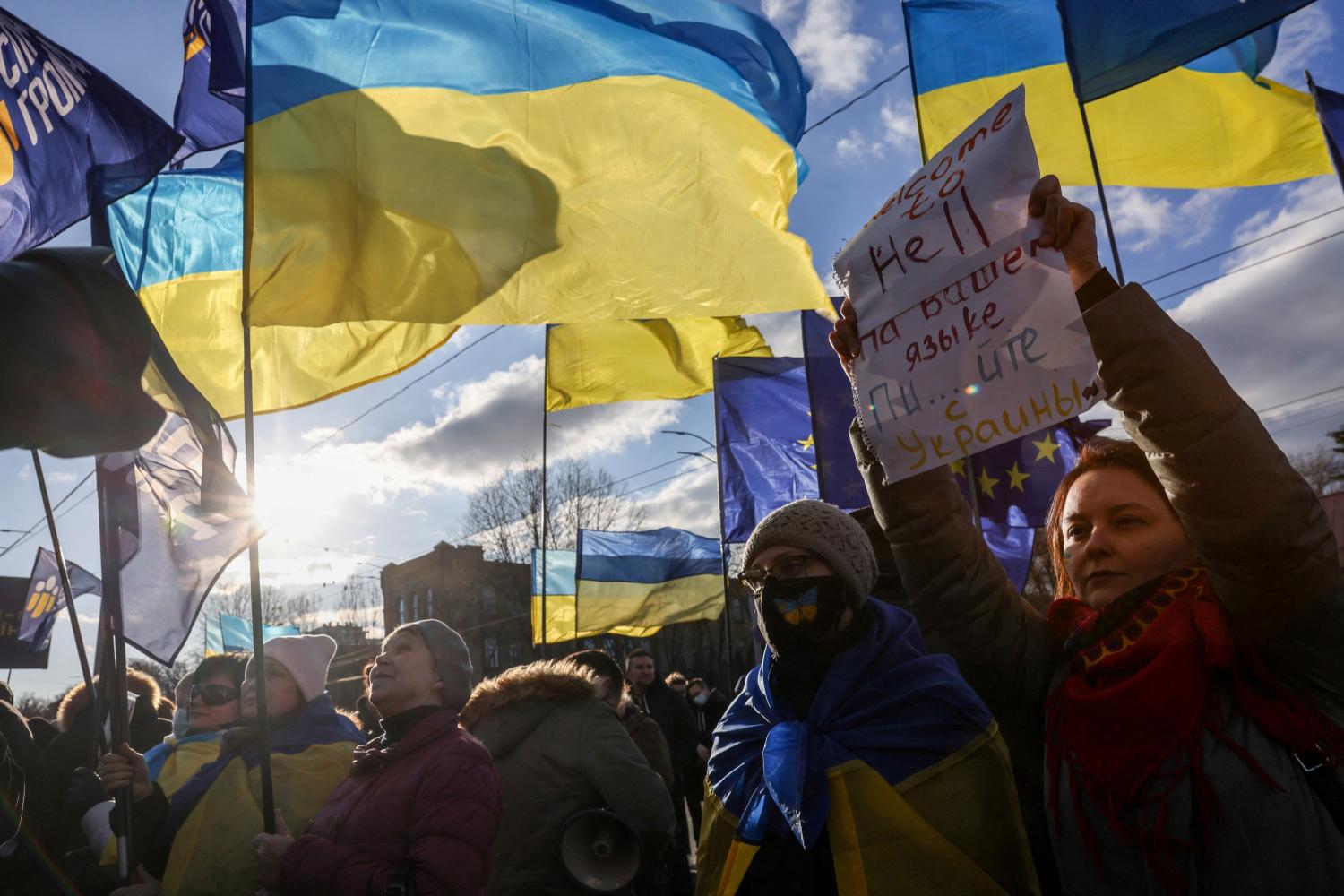


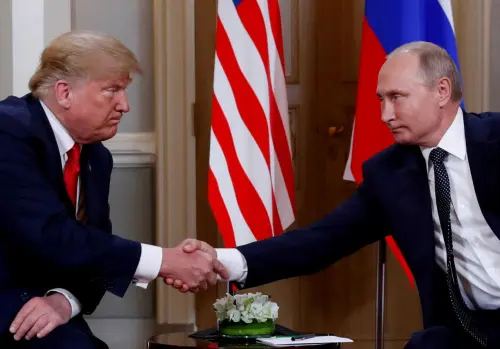
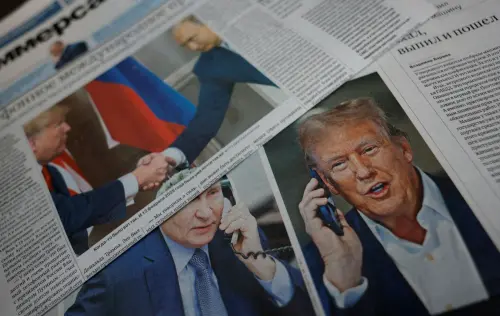
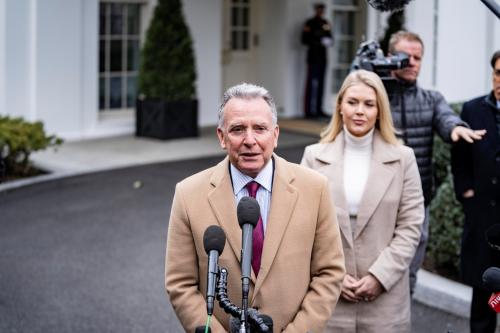


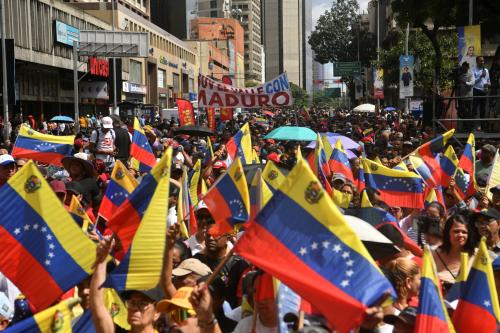
Commentary
How to make time work against Putin in Ukraine
Trump should lead a combined effort to make Putin see that the longer the war goes on, the more Russia will suffer.
May 28, 2025